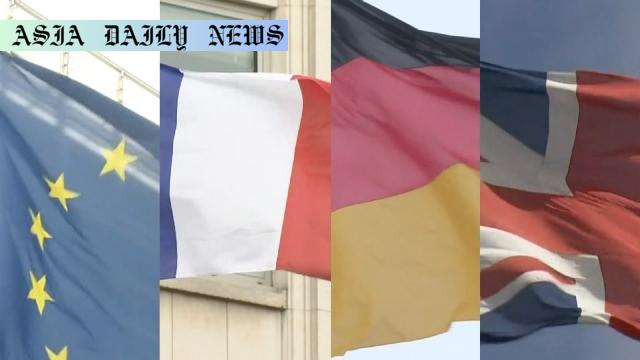Nuclear Talks: European Union officials and Iran prepare for key Geneva discussions over growing nuclear conflict
- European and Iranian officials will hold critical nuclear discussions in Geneva.
- Talks come amid escalating tensions with Israel and the US.
- Focus will be on urging Iran to return to the negotiating table.

Background on Nuclear Tensions with Iran
The international community has been closely monitoring Iran’s nuclear program, which has been a subject of concern for years. The French, German, and British foreign ministers, along with the European Union’s foreign policy chief, will meet Iranian representatives in Geneva to discuss measures to address escalating tensions. Iran, accused of advancing its nuclear program beyond peaceful use, has not yet complied with international calls for transparency. This meeting in Geneva represents a vital attempt to diplomatically resolve the challenges posed by Iran’s nuclear expansion.
Meeting Objectives and Expected Discussions
The European delegation is set to urge Iran to return to the negotiating table in light of growing concerns. This is particularly important as the United States, under President Donald Trump’s administration, has signaled a potential military response within the next two weeks. Furthermore, Israel’s actions targeting Iranian facilities have exacerbated regional instability, fueling an already volatile situation. European leaders aim to mitigate these hostilities by promoting dialogue and seeking amicable solutions that ensure regional security.
Coordination with the United States
Despite Europe spearheading the discussions, the United States is playing a pivotal role in shaping diplomatic strategies. EU officials confirmed that the deliberations would take place in coordination with the US, reflecting a collective international effort to address Iran’s nuclear developments. This collaboration underscores the importance of a unified global approach to ensuring nuclear non-proliferation and safeguarding peace in the Middle East.
Implications of the Geneva Talks
The Geneva talks carry significant implications on multiple fronts. Should Iran choose to cooperate and ease international concerns, it could pave the way for eased sanctions and improved diplomatic ties. Conversely, a failure to reach an understanding could result in escalated conflict involving Israel or even direct US military action. Either outcome will largely depend on the tone and substance of the Geneva discussions, making this meeting a critical juncture in global efforts to address nuclear threats.
Conclusion
The upcoming talks in Geneva represent an opportunity for de-escalation amidst a climate of growing tension. The European Union, alongside its partners, seeks not only to address nuclear concerns but also to prevent further destabilization in the Middle East. As global actors converge on Geneva, the stakes could not be higher, highlighting the urgent need for constructive diplomacy and meaningful engagement.



Commentary
The Importance of Constructive Engagement
The Geneva meeting underscores a critical moment for global diplomacy. As tensions escalate due to Iran’s nuclear program and regional hostilities involving Israel, the pressing need for dialogue and resolution has never been clearer. These talks highlight the role of multilateral cooperation in addressing complex global issues, showcasing how coordinated strategies can potentially prevent conflict and pave the way for sustainable solutions.
The Role of the European Union
The European Union’s commitment to de-escalating the situation demonstrates its determination to act as a responsible global mediator. By bringing together disparate parties, the EU not only asserts its role in promoting peace but also underscores the necessity of diplomatic resolutions in preventing the broader fallout of military actions. This meeting is a testament to the EU’s dedication to global stability.
Looking Ahead
As we await the outcomes of the Geneva talks, it is essential to remain hopeful and observant. Success in these negotiations could avert further conflict, curtail nuclear concerns, and normalize relations with Iran. Failure, however, might lead to a new chapter of military confrontation, impacting not just the region but the broader international community. Ultimately, these talks are a reminder of how critical diplomacy is and how high the stakes are when negotiations determine the fate of peace.